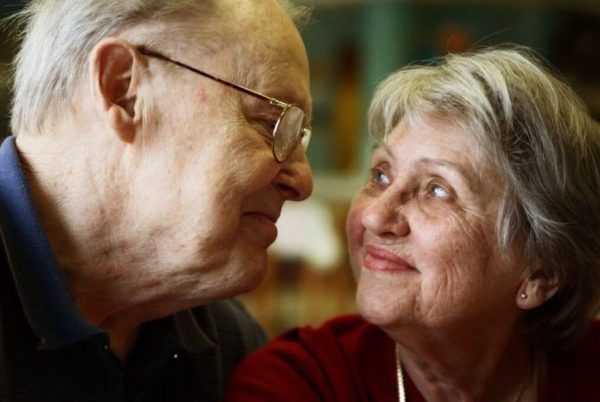Use My Relationship Healing Toolbox To Build A Healthy Connection With Your Partner
Just as physical exercise can improve your muscles, so too, with guidance and practice you CAN build your emotional muscles — you can improve your attitude and behavior for increased relationship success.

My Couples Counseling Books, Videos, and Worksheets Provide the Guidance. You Provide the Practice — all in the privacy of your home or place of work.
- Professional Advice
- Easy To Read Books
- Self-Hypnosis Audio Books
- Insightful Videos
- Couples Therapy Worksheets
Love Connections Vs. Emotional Rejections
A successful marriage or committed relationship is built on 16 scientific principles. These principles are scientific because they have the same outcome with every couple. Just as mixing yellow and blue always produces the color green, so too these principles, when applied to a committed relationship, will always produce the same outcome.
- PEACE AND HARMONY VS. RELATIONSHIP-FIGHTING AND CONFLICT
- ACCEPTANCE VS. ANGER
- INVESTING IN THE RELATIONSHIP VS. WITHDRAWING FROM THE RELATIONSHIP
- TRANSPARENCY VS. KEEPING SECRETS
- COLLABORATION VS. UNILATERAL-DECISIONS
- LOYALTY VS. DISLOYALTY
- COMMITMENT VS. RESPONSIBILITY-AVOIDANCE
- LIVING IN REALITY VS. UNREALISTIC EXPECTATIONS
- ACCEPTING OF PARTNER’S BIRTH FAMILY VS. REJECTING OF PARTNER’S BIRTH FAMILY
- ROLE NEGOTIATION VS. ROLE-DISLIKE
- EMOTIONAL SELF-MANAGEMENT VS. EMOTIONAL VOLATILITY
- RESPECT VS. ABUSIVE CONTROL
- SELF-CARE VS. SELF-HARM
- SOBRIETY VS. ADDICTIONS
- FIDELITY VS. INFIDELITY
- ROMANCE AND SEX VS COLDNESS AND DISTANCE
When you have 16 Love Connections with your partner your relationship is extremely healthy. Everything feels right about your relationship, you have no complaints or concerns, and this is your normal state of marriage. The same is true when your body is healthy, you have no pains or concerns. When your body is unhealthy, it grabs your attention by producing pain or dysfunction.
The same is true with your emotional health or commitment. When it is healthy, you feel content and fulfilled; when it is not healthy, you feel lonely, anxious, and unhappy. These negative feelings tell you something is wrong in your relationship that must be corrected.
Below are the 16 relationship ‘mistakes’ that interfere with a loving, caring, and long-lasting relationship and what you can do to ‘correct’ these mistakes and build strong and lasting Love Connections with your partner.
Examples: Arguing, punishing, threats, and resisting reasonable requests.
If you live with relationship conflict and animosity, this will be emotionally painful for you and your partner. You may even contemplate divorce or separation!
If there is fighting in your relationship, you and your partner will feel lonely, unloved, misunderstood, and fearful about the future of your relationship.
TREATMENT
Personal responsibility
Both you and your partner must take the position that you are responsible for your behavior. This means the only way to stop the fighting is not to blame one another for the conflict.
It is necessary to learn communication skills so you and your partner can comfortably talk with each other and differences of opinion can be expressed calmly and respectfully without leading to arguments and anger.
Professional help
Find a qualified and caring relationship specialist who can teach you effective communication skills, what reasonable expectations are, and how to care for and show love to one another.
Self-help
Power books:
- The 8 Marriage Rules for a Passionate Marriage
- Anger Management Workbook
- Anger Control Audiobook
- Control del Enojo Spanish Audiobook
- Assertive Behavior Audiobook
Insightful videos:
- Be Assertive
- GIVE YOUR WORDS POWER… They Will Be Heard
- Learn What Science Has to Say About Relationship Failure!
- Should I Get a Divorce
- Tips For Men: Relationship Harmony to Stop Relationship Breakdown
- Your Wife or Girlfriend Wants a Divorce (and the 10 steps to get her back)
- Ingredients for an Emotional Conversation
Couples therapy worksheets:
- Improve Your Listening Skills to Build Understanding
- Build Positive Feelings In Your Relationship
- Rekindle Closeness in Your Marriage or Committed Relationship By Knowing Details About Your Partner
- Fake-it Until You Make-it Acts of Loving Kindness
- Loving and Caring Behaviors
- Emotional Closeness in Your Marriage or Committed Relationship
- Fix a Broken Marriage or Committed Relationship Caused by Past Mistakes
- How to Get Started as a Stepparent
Examples: Sarcasm, passive-aggressive anger, shaming, teasing, and ignoring.
If your partner is frequently angry, you will feel unsafe, fearful, and resentful. If you are the one angry, this is exactly how your partner will feel.
An angry person injures three people: the person the anger is directed at, those present during the anger outburst, and the person expressing the anger.
Anger outbursts create a toxic home environment.
The angry person uses fear and emotional pain to get his or her way. A relationship governed by fear is unhealthy and causes relationship damage. When strong anger is present, the committed relationship will eventually break, and the two individuals will part ways — sometimes by emotional polarization and sometimes by separation or divorce.
TREATMENT
Personal responsibility
The partner who has repeatedly been angry needs to take full responsibility for his or her behavior. Blaming anyone else for getting angry eliminates the possibility of stopping expressions of anger. Simply, when a person blames somebody else for their anger, what they are really saying is they cannot control it themselves. Such a person will never learn to be calm and respectful.
Professional help
Some people can stop being angry by asserting their willpower to stay calm.
Sometimes, an anger management specialist or program is required to teach the angry individual how to stay calm and contribute to a safe and loving relationship.
If needed, the angry person should be willing to participate in relationship therapy if requested or required.
Self-help
Power books:
Insightful videos:
- Gaslighting is passive-aggressive anger
- Anger is harmful
- What to Do About YOUR Anger Problem
- Ingredients for an Emotional Conversation
Couples therapy worksheets:
Examples: No romance or sex, no talking, staying away from home.
Partners need to stay invested in one another. If your partner withdraws from you either emotionally or sexually, it will likely devastate you. You will feel alone, rejected, unwanted, and sad. If you withdraw from your partner, he or she will feel the same.
Relationship withdrawal violates the understood contract between the two individuals who choose to live together and share their lives in meaningful ways.
TREATMENT
Personal responsibility
The partner who withdrew needs to make amends by reversing course and begin sharing their life with his or her partner.
If the primary area of withdrawal is romantic and sexual, it is necessary to figure out why and fix the problem.
Professional help
A professional therapist can help devise a plan to build emotional and sexual intimacy.
Self-help
Power books:
Insightful videos:
Couples therapy worksheets:
Examples: Romantic cheating with an illicit person, purchasing items behind a partner’s back, and secretly viewing pornography.
If your partner has a secret life that exists without your knowledge, he or she is building a wall between the two of you.
Secrets are expressed and maintained with lies and misleading words. In either case, this hurts the individual who has been excluded.
When a secret is discovered, it erodes trust, safety, respect, closeness, and love between partners.
TREATMENT
Personal responsibility
First and foremost, the individual who has been keeping secrets needs to stop their bad behavior and transition to a more open and honest relationship with their partner.
The keeper of secrets should give the excluded partner opportunities to ask questions they may have regarding the withheld information.
If the secrets have disrupted the harmonious partner relationship, a practical plan needs to be made to make sure that there will be no secrets in the future.
Professional help
There may be a need for a professional therapist to help the person who keeps secrets to understand doing so is ‘wrong’; to take responsibility for what he or she has done, to recognize how lying injures his or her partner, and to establish future accountability to the excluded partner so secretive behavior will not happen again.
Self-help
Power books:
Insightful videos:
Toxic relationship couples counseling worksheets:
Examples: Without consulting one’s partner, purchasing expensive items, moving the family to a new location, and selfishness.
Should you or your partner make important decisions without consulting one another, the overlooked partner will feel unsafe, anxious, and lonely.
Making unilateral decisions leads to mistrust, suspicion, and arguments.
TREATMENT
Personal responsibility
The offending partner needs to recognize that making decisions without consulting their partner, who is an equal, will seriously injure their relationship.
Professional help
To learn good communication skills, equitable and reasonable expectations, and for some individuals, gender equality training.
Self-help
Power books:
Insightful videos:
Couples therapy worksheets:
Examples: Committing adultery, being insensitive, and prioritizing the wrong people.
If your partner is disloyal to you, you will feel betrayed, unimportant, abandoned, and mistrustful. If you are disloyal to your partner, he or she will feel the same as you would had you been betrayed.
You and your partner must make each other the #1 person in each of your lives. Disloyalty occurs when there is repeated prioritizing of extended family members, friends, or even children over and above one’s partner.
Disloyalty occurs when an unfortunate partner is abandoned due to the loss of your money, success, or health.
TREATMENT
Personal responsibility
The disloyal partner must be willing to consider his or her partner’s legitimate needs and have his or her back should they be under attack.
Professional help
Participation in relationship counseling to better understand the importance of loyalty and the injuries caused by disloyalty.
Self-help
Power books:
Insightful videos:
Couples therapy worksheets:
Examples: Laziness, an unwillingness to consider problems and how to fix them, unwillingness to earn a living, unwillingness to take care of the home, and neglect of the children.
Being in a family requires each member to behave responsibly, which includes making efforts to contribute to the well-being of each family member.
Suppose you or your partner is unwilling to participate in a responsible way contributing to the legitimate needs of each family member. In that case, the responsible partner will feel the situation is unfair and that he or she is being taken advantage of, and he or she will be resentful.
TREATMENT
Personal responsibility
The offending partner who is unwilling to behave responsibly must recognize that as an executive in the family, he or she must participate in the well-being of every family member and recognize that not participating is unfair and hurts others.
A family is like a small community. Each person has to do his or her part.
Professional help
If your partner is not responsible because of depression, anxiety, or resentment, they must get help from an appropriate professional to overcome these obstacles to full family participation.
The partner who needs to become responsible is willing to participate in relationship therapy if requested or required.
Self-help
Power books:
Insightful videos:
Couples therapy worksheets:
Examples: Disappointment in one’s partner, anger, criticism.
If your partner expects too much from you, he or she will feel resentful, angry, and disappointed with you. If you expect too much from your partner, he or she will feel the same.
Unrealistic expectations can lead to arguing, expressions of anger, nagging, and in general, dissatisfaction with the relationship.
TREATMENT
Personal responsibility
Whoever has ‘unrealistic expectations’ needs to learn how to be accepting, eliminate feelings of entitlement, develop humility, and express gratitude.
Professional help
If necessary, your partner should be willing to engage in personal therapy to understand where their feelings of entitlement come from and what are reasonable expectations. The offending partner should consider a spiritual practice as a way of acquiring non-physical values and goals to reduce unreasonable expectations.
Self-help
Power books:
Insightful videos:
Couples therapy worksheets:
Examples: Criticizing and unwillingness to visit or entertain in-laws.
Coupled individuals need to support their partner in having a comfortable and healthy relationship with their birth family members.
If you or your partner resist efforts to integrate extended family members or a particular member of the extended family into your family, the partner whose extended family is being shunned will experience significant emotional pain and disappointment.
Forcing one’s partner to be distant from their birth family members causes embarrassment, lost opportunities of belonging, and leads to resentment toward the offending partner.
TREATMENT
Personal responsibility
Acknowledging that each family member has the right to have an active relationship with his or her birth family.
Each partner should let their other partner take the lead regarding social activities with their birth family and should take part in a cooperative and pleasant way.
Professional help
Use a family therapist to help build harmonious relationships with all extended family members.
Self-help
Power books:
Insightful videos:
Couples therapy worksheets:
Examples: Bullying to force a partner to do something against his or he will, and insensitivity to a partner’s feelings.
Role dislike is an unwillingness to acknowledge the legitimacy of one’s partner having increased authority in an area of specialization.
For example, a man unwilling to recognize his female partner’s natural instincts to take care of their newborn infant and competing with her over what is the best care.
For example, a woman trying to control her husband’s business by giving unwanted opinions and demanding specific procedures be carried out.
TREATMENT
Personal responsibility
Recognize that each individual has unique aptitudes and competencies. Respecting these differences and taking a supportive role rather than a leading role.
Professional help
Using a therapist to help develop a clear understanding of some of the differences that exist between two people.
Self-help
Power books:
Insightful videos:
Couples therapy worksheets:
Examples: Being depressed, anxious, angry, insensitive, and hateful.
Expressing strong emotions freely and without limitations will have a negative effect on the relationship. The more subdued partner will find the strong emotion overwhelming and off-putting.
Excess guilt, anger, anxiety, worry, and obsessing about particular topics can make building a close and comfortable relationship difficult.
Unrestricted emotions can lead to partner avoidance and anger.
TREATMENT
Personal responsibility
Understanding that ‘relationship fitness’ is not automatically acquired. If you or your partner behave with uncontrolled emotions or immaturity, a solution to correct this problem must be found.
Professional help
Find a good psychotherapist to help the overly emotional or immature partner develop personal relationship skills.
Self-help
Power books:
- Strong Self-Esteem Audiobook
- Defeat Depression Audiobook
- Enter Happiness Audiobook
- Optimism Audiobook
- Peace of Mind Audiobook
Insightful videos:
Couples therapy worksheets:
Examples: Emotional abuse, physical abuse, sexual abuse, financial abuse, verbal abuse, psychological abuse, mental abuse.
When a person believes they have a right to control their partner and make efforts to do so, this is called abuse.
The abuser achieves control using hostile emotions such as anger, shaming, criticizing, gaslighting, bullying, and physical violence to assert his or her authority.
Such behavior severely injures the victim of abuse and cripples the relationship.
TREATMENT
Personal responsibility
Recognize that all forms of abuse are wrong. The abuser must acknowledge that every person is equal and entitled to independence and freedom — no one has a right to control another person.
Professional help
Find a good relationship specialist who can explain the reasons abuse is unacceptable behavior within a relationship and create accountability in the future. The professional can teach anger management and engage in psychotherapy if needed. Join a group to help overcome abusive behaviors is also a valuable resource.
The abusive person is willing to participate in relationship therapy if requested or required.
Self-help
Power books:
- The 15 Essential Facts Victims of Emotional Abuse Need to Know
- Anger Management Workbook
- Anger Control Audiobook
- Control del Enojo Para Detener el Abuso Spanish Audiobook
- Assertive Behavior Audiobook
Insightful videos:
- How to heal from emotional abuse — a guide for past abusers
- Give Your Words Power… They Will Be Heard
Couples therapy worksheets:
Examples: Substance abuse, over-eating, self-cutting, attempts to kill oneself, not caring for oneself.
Ingesting unhealthy substances or engaging in risky or harmful behavior hurts the person who is harming themselves and everyone else in the family.
Self-harm can lead to a minor injury, disability, or death.
TREATMENT
Personal responsibility
An honest recognition that self-harm and other risky conduct are unacceptable behaviors.
The person engaged in self-harm is willing to take personal responsibility to correct the situation and engage in a practical action plan to remedy the problem.
Professional help
Get professional help from a qualified mental health specialist. Through therapy, the person will be able to recognize that self-harm and risky conduct are unacceptable behaviors.
Self-help
Power books:
Insightful videos:
Couples therapy worksheets:
Examples: Pornography, alcohol, drugs, gambling, unhealthy exercise, unhealthy eating.
If you or your partner live with an addiction, know that it hurts everyone. Depending on the addiction, it can lead to a decrease in the family’s finances, and stability, and cause illness or death.
Addictive behavior excludes responsible behavior. A person addicted to something cannot control his or her life. Because of this, they cannot responsibly and fully contribute to their family community.
TREATMENT
Personal responsibility
Being honest that one is an addict and being responsible for seeking treatment.
Professional help
Using a therapist or finding a therapeutic group to get the necessary treatment and support to stop the addiction.
The addict is willing to participate in relationship therapy if requested or required.
Self-help
Power books:
Insightful videos:
Couples therapy worksheets:
Examples: Having an outside lover, visiting a prostitute, partner’s reaction to viewing pornography.
Lies, deception, and betrayal are all part of infidelity. The victimized partner naturally loses all confidence in their partner.
Should the cheating stop, security and trust in the offending partner will not return on its own. A deliberate program of Infidelity Recovery is necessary for the relationship to return to its original pristine state.
TREATMENT
Personal responsibility
Remorse, sensitivity, honesty, and cooperation by the partner who cheated.
Professional help
Taking part in an Infidelity Recovery Program conducted by a qualified and caring mental health professional.
Self-help
Power books:
- Surviving Infidelity
- Relationship Listening Audiobook to Help With Infidelity Recovery
- Peace of Mind Audiobook
Insightful videos:
- How to forgive a cheating husband/boyfriend or wife/girlfriend
- When to Walk Away After Infidelity [8 factors]
- 11 Reasons an Individual Cheats on His or Her Partner
- Who Will Tell You The Truth About What Lying Does To Your Valued Relationships?
Couples therapy worksheets:
Examples: Always declining romantic and sexual invitations, not enjoying sexual contact, thinking being sexual is wrong or bad.
Romance and sexual contact are essential to a healthy, committed relationship.
Sexual love not only builds positive regard between two committed individuals, but the pleasure shared overrides negative interactions that often happen between two people.
TREATMENT
Personal responsibility
Acknowledge that an important part of being married is engaging in a romantic and sexual relationship with your partner and when this is not happening or is very infrequent, this is a loss for you and your partner.
Professional help
Seek medical or psychological assistance to increase desire and libido. Often, low sex drive is because of an unhappy relationship. If this is the case, see a caring and qualified relationship specialist.
Self-help
Power books:
Insightful videos:
Couples therapy worksheets:





Hey abe me and my ex broke up about 4 days ago and I realised I was emotionally abusing her and I regret all my actions and never meant it. I stressed her out by saying there was no point in living after we broke up and she still really likes me she just doesn’t think its healthy to date me again which I understand but Is there any way I can change that and get back with her?
Hello, as I understand your message you are telling me that you have emotionally abused your ex. Taking this as a starting point, you need to start doing some soul-searching. There are three reasons that people abuse. 1. Because they want to control another person, or 2. They don’t know how to manage their anger and disappointment, or 3. They don’t understand how to behave in a close and intimate relationship with another person I need some relationship education. Take a look at yourself and ask yourself the question — of the three possibilities that explain why I have abused my ex, which one is it. If you conclude it is because you want to control your ex, you need to get some heavy-duty therapy to help you change your core values. If it is number two, that you do not know how to manage your anger, I suggest you read some books on anger management and get some professional help if needed. I will provide you with a link to one of my books on anger management that will likely be helpful. If the reason that you have abused your ex is because you don’t know how to manage your relationship, I suggest you get some books on how to build peace and love in a relationship. One book that would be good I have written myself and I am providing a link to it. I hope this helps and I hope that you were able to get back with your partner and have a great life together. Regards, Abe
Anger Management Workbook
The 8 Marriage Rules for a Passionate Marriage
My husband had a 6 month affair but won’t say WHY,WHY SO MANY? WHY he didn’t want or come to me since he says he loves me and wants to stay with me. I don’t understand. Thank You
Hello, I certainly understand how upsetting this must be for you, given that your husband offers no explanation for why he cheated. Obviously, I do not know why he will not discuss this with you. However, besides wanting to understand what happened, which is a natural human need, if you don’t know why he did what he did, it will be difficult for him to reassure you that it won’t happen again in the future. Knowing that he will not cheat again in the future is of great importance to your mental health and the success of your marriage. Because of this reason and more, I hope your husband finds the courage to explore and discuss with you the reasons why he cheated. Based on years of experience, when a couple is struggling with infidelity, it is an absolute necessity to find a skilled relationship specialist to help them overcome this crisis and trauma. I wish you the best, Abe
Hi Abe, I’ve repeatedly told my wife, the affair is over, it was only oral sex, but she insists on the WHY, why so many. Isn’t the fact I admitted to oral sex enough? Isn’t that too much info?
Thanks
Recovering from infidelity is complex. Regarding the “why” that your wife keeps asking, it is possible if she is looking for a means to prevent you from cheating in the future. The “Why” allows her to have some control and be able to avoid certain things or do certain things with you so that cheating will not reoccur. Likely it’s a way for her to try to gain control over what is typically a very chaotic trauma. As well, I think it is important for you to understand the “Why” if you don’t. You too need to know what you have to do to prevent this from happening in the future.Abe